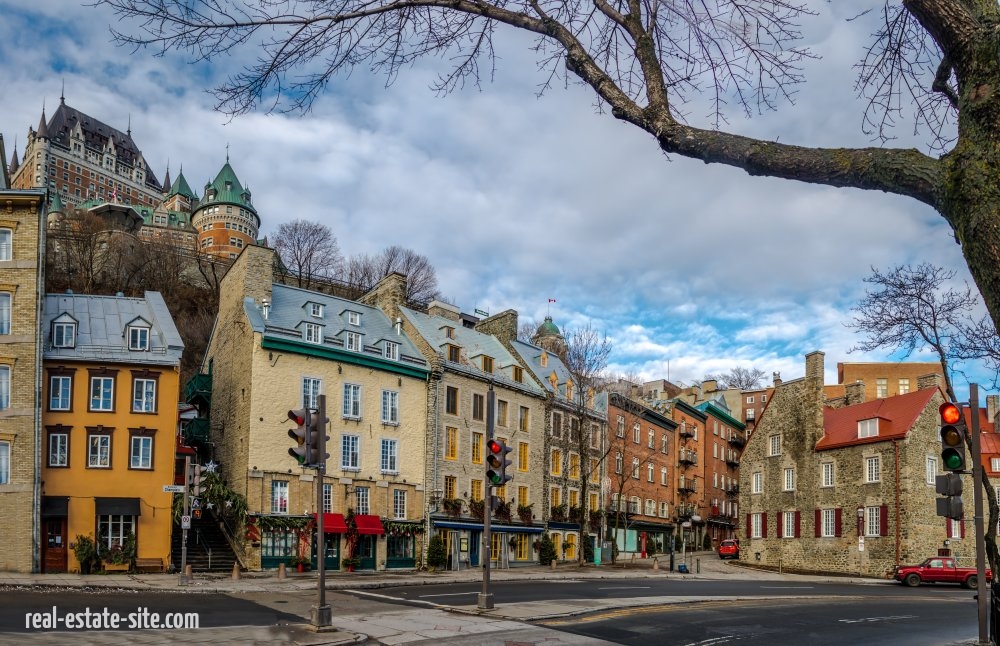Quebec City, located in the province of Quebec, Canada, is known for its rich history, stunning architecture, and charming Old Town. With its unique blend of European-style charm and North American amenities, it’s no surprise that the real estate market in Quebec City is highly sought after.
It is also a popular destination for real estate investment, with a range of properties available, including single-family homes, apartments, and commercial properties.
The real estate market in Quebec City is relatively stable, with prices rising steadily in recent years, although there can be fluctuations in the market, particularly in response to changes in the local economy or wider market conditions.
One of the biggest attractions of Quebec City’s real estate market is its affordability compared to other major cities in Canada. Properties in the city are generally more affordable than those in major cities such as Montreal or Toronto, making it an attractive option for those looking to invest in real estate.
However, it is worth noting that the real estate market in Quebec City can be impacted by the wider economy of the province, which has been affected by factors such as low oil prices and economic uncertainty in recent years. As a result, it is important to research the local market and seek expert advice before making an investment in the city.
The real estate market in Quebec City is diverse, with properties available to suit a range of tastes and budgets. The city is divided into several distinct neighborhoods, each with its own unique character and charm. The historic Old Quebec neighborhood, for example, is known for its narrow cobbled streets and historic architecture, making it a popular choice for those looking for a traditional and charming property.
The housing market in Quebec City offers a wide range of options, from historic homes in the Old Town to modern apartments in the city center. The most expensive neighborhoods in Quebec City are typically located in the Old Town, where the median home price can reach upwards of $500,000. These areas offer a mix of stunning architecture, narrow cobblestone streets, and a vibrant community of shops, restaurants, and cafes.
However, there are also more affordable neighborhoods in Quebec City, such as Beauport, Limoilou, and Ste-Foy, where the median home price is closer to $300,000. These areas offer a more suburban feel, with spacious parks and tree-lined streets.
Commercial real estate in Quebec City is also a popular investment option, with a range of office buildings, retail spaces, and industrial properties available. The city has a thriving economy, driven by tourism, manufacturing, and technology, making it a prime location for commercial investment.
The rental market in Quebec City is also strong, with a variety of options available, including apartments, townhomes, and single-family homes. Rental prices in Quebec City are generally lower than in other major Canadian cities, with the average one-bedroom apartment going for around $800 per month.
When it comes to the Quebec City real estate market, it’s important to consider the city’s location and climate. Quebec City experiences harsh winters, which can impact the real estate market and the overall economy. Additionally, the city’s location in a predominantly French-speaking province can impact the real estate market, as well as the overall lifestyle and culture of the city.
Overall, the real estate market in Quebec City is diverse, with a wide range of options available for buyers and renters. Whether you’re looking for a historic home in the heart of the Old Town or a modern apartment in a bustling neighborhood, there’s something for everyone in Quebec City.
In conclusion, Quebec City is a city with a lot to offer in terms of real estate investment. With its affordable properties, stable market, and thriving economy, it is an attractive option for those looking to invest in the Canadian real estate market. However, it is important to consider the wider economy of the province, seek expert advice, and research the local market before making any investment decisions.

